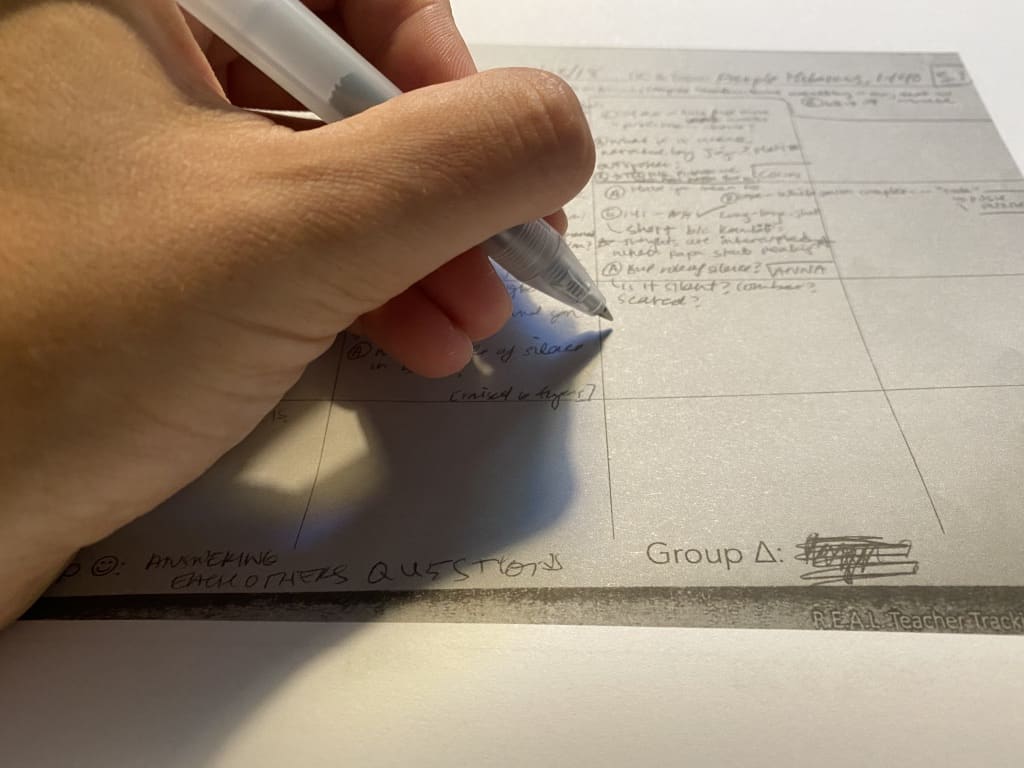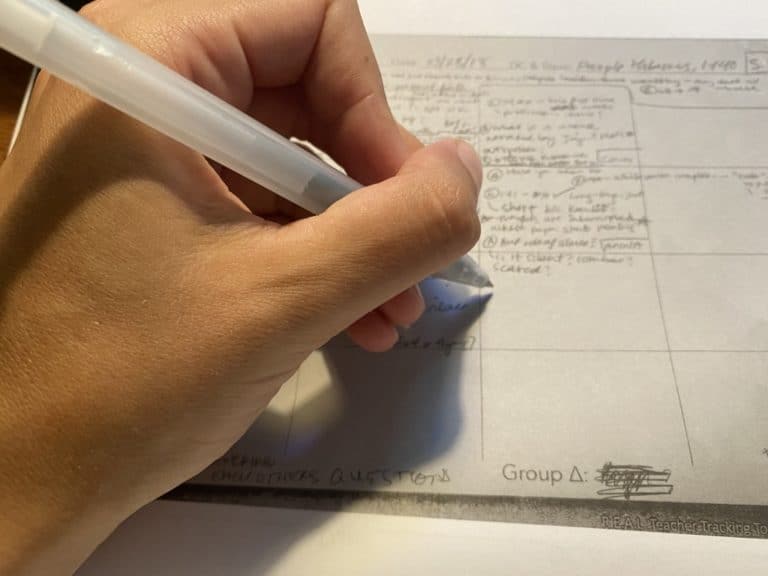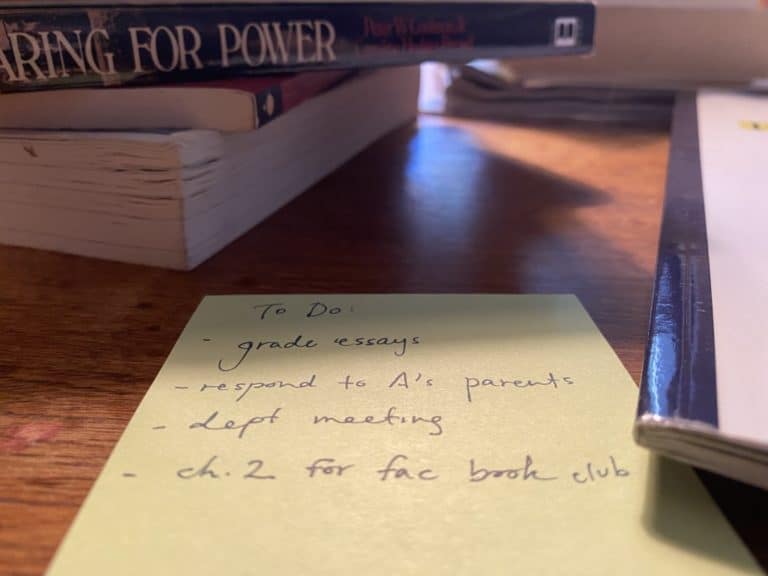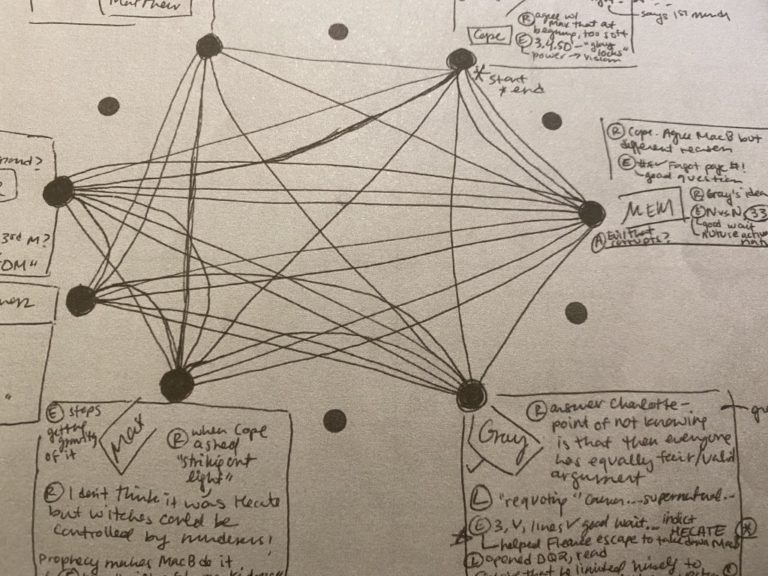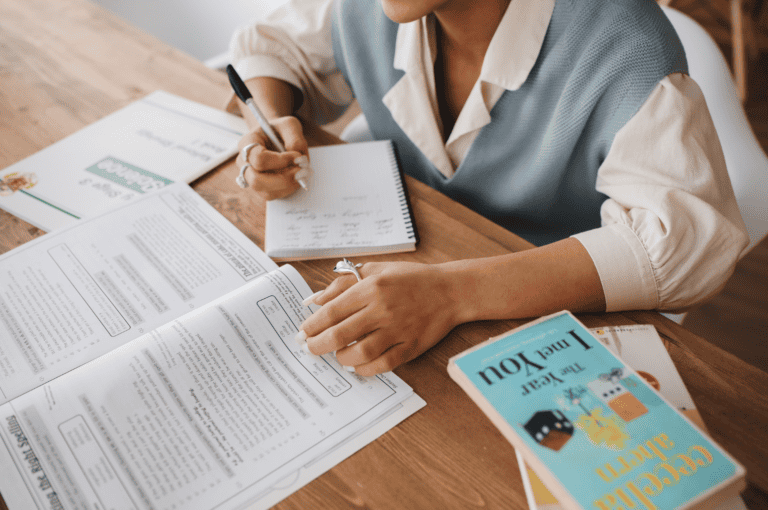Upstream, Online, and… in the kitchen?
Beyond the Syllabus posts offer a round-up of resources that are “practice-adjacent,” as Katherine often says. We offer recs for podcasts, fiction and non, and TED talks that offer delightful – if surprising – ways to rethink or enrich discussion practice.
Multimedia Report: Initiative on Technology-Enhanced Learning at Georgetown University. Georgetown’s Center for New Designs in Learning and Scholarship (CNdLS) funded faculty projects in technology integration from 2013-2016 in an effort to rethink instructional methods for the future. In many senses, that “future” of blended instruction seems to have arrived, and the bevy of ideas and presentations from the Initiative on Technology-Enhanced Learning (ITEL) program offer useful ideas for teachers at all levels looking to plan effective instruction that uses technology effectively. We recommend Nora Gordon’s “Flipping (Parts of) the Public Finance Classroom” and Maggie Debelius and Matthew Pavesich’s “How Technology Can Enhance Writing Instruction at Georgetown” for their models of asynchronous, online instruction that can free time for meaningful and well-prepared synchronous instruction during class time. The strategies that CNdLS offers can not only help with creative design in online and blended environments, but may also reshape classrooms post-pandemic.
Podcast: Dan Heath on “The Armchair Expert.” Popular podcaster and comic actor Dax Shepard interviews Dan Heath, author of books like Upstream, in this podcast episode. Amid jokes and life stories, Shepard works with Heath to apply his principles of Upstream thinking to problems in daily life, such as (but not limited to) the Covid-19 pandemic. As Heath describes the principles of upstream thinking, he shares the principle that systems produce the products they’re designed to produce. Applied to schools and school systems, Heath’s ideas challenge us to think through the design and redesign of not just single curricula, but also school culture and practice by thinking “upstream”: broadly and systemically. We like the way that the episode clearly shares and applies a principle of backward design to real-world problems, and the way that it challenges us to rethink overarching processes and structures that shape student learning.
Article: Alex Beggs, “My 5-Step Guide to Learning How to Cook.” Beggs’s Bon Appetit article proudly, humorously, decadently (?) guides readers through a more fruitful approach to learning one’s way around the kitchen: namely, “don’t start with a salad.” As Beggs guides her reader through the delights of cooking unhealthy treats, taking on ambitious projects as learning experiences, making a satisfying (easy) cocktail to ease the pain, and asking for help, we can’t help noticing that many of her lessons apply to students in any course. The cooking metaphor simplifies much of what we know about learning: that a mixture of learning through experience, taking on projects with satisfying rewards, and collaborating to pool knowledge can lead to a more satisfying overall experience. We recommend the article as a possible frame for the different phases, functions, and pleasures of a discussion that leads to useful and measurable learning.
